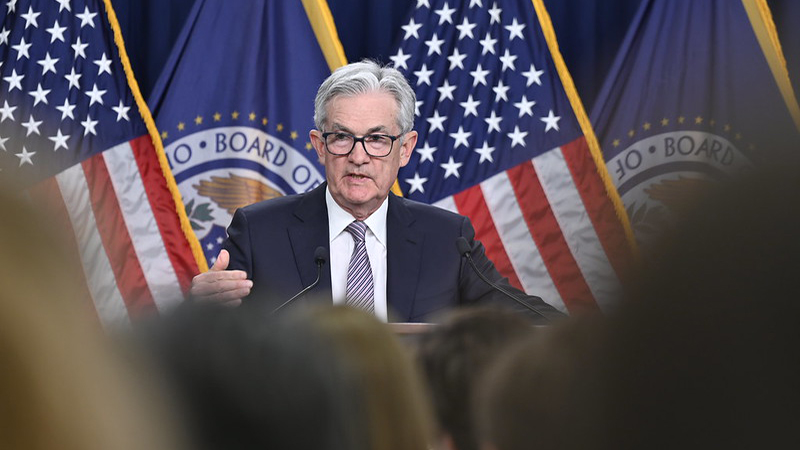Weaker than anticipated US jobs data has sparked concerns over the likelihood of a recession.
The S&P 500 fell 1.84% on Friday following the report, while on Monday, circuit breakers were implemented in Japan to curb panic-selling as the Nikkei 225 ended trading down 12.4%.
The report, released on Friday, showed US job creation had slowed to 114,000 in July. Meanwhile, the unemployment rate also rose to 4.25%, up 90 basis points from a cycle-low in April 2023.
Friday’s data led to the triggering of the ‘Sahm rule’ – an indicator which hints at a recession when the three-month moving average of the national unemployment rate exceeds the lowest three-month moving average rate from the previous year by 50bps or more.
See also: Crisis point: Concerns grow over mounting government debt levels
It follows the Federal Reserve’s decision to hold the Fed Funds Rate at 5.25% to 5.5% last week.
Seema Shah, chief global strategist at Principal Asset Management, questioned whether the data may leave the Fed regretting it had not cut rates at last Wednesday’s meeting.
She said: “Oh dear, has the Fed made a policy mistake? The labour market’s slowdown is now materialising with more clarity. Job gains have dropped below the 150,000 threshold that would be considered consistent with a solid economy.
“The rise in the participation rate is certainly good news and dulls the recession signal from the newly triggered Sahm Rule. Even so, a September rate cut is in the bag and the Fed will be hoping that they haven’t, once again, been too slow to act.”
Despite the recessionary signals, Tiffany Wilding, PIMCO managing director and economist, adds that there are mitigating factors not reflected on paper.
“While the headline numbers were weaker than expected, and certainty reflect an economy that is slowing, there were some caveats in the details, which continue to paint a picture of a slowing but not yet crashing economy.
“First, Hurricane Beryl hit Texas during the survey week, with 436,000 workers unable to work due to bad weather, and an additional 1,079,000 forced to work part time.
“Second, some inability of the seasonal factors to fully adjust for seasonal hiring also likely contributed to the noise. Third, the increase in the unemployment rate has occurred without a notable fall in the level of employment. Rather labour supply has expanded.”
See also: Four alternative trust sectors primed to benefit from rate cuts
With inflation easing to 3% in June, just ahead of the Fed’s target of 2%, Charles Schwab UK managing director Richard Flynn said the jobs report shows that the balance of risks are changing.
He said: “The recent loosening in the jobs market has been a positive indicator for inflation prospects, as too much activity can be a precursor to demand-side pressure on prices. Since inflation figures have come into shooting distance of the Fed’s target, however, the balance of risks has begun to change.
“Today’s figures may stir anxieties that central bankers haven’t moved fast enough to cut rates, nudging the jobs market into a downward spiral. The Fed’s lengthy hiking campaign is so close to achieving its objective for inflation – let’s hope that success on that front doesn’t cause the labour market to tumble.”










